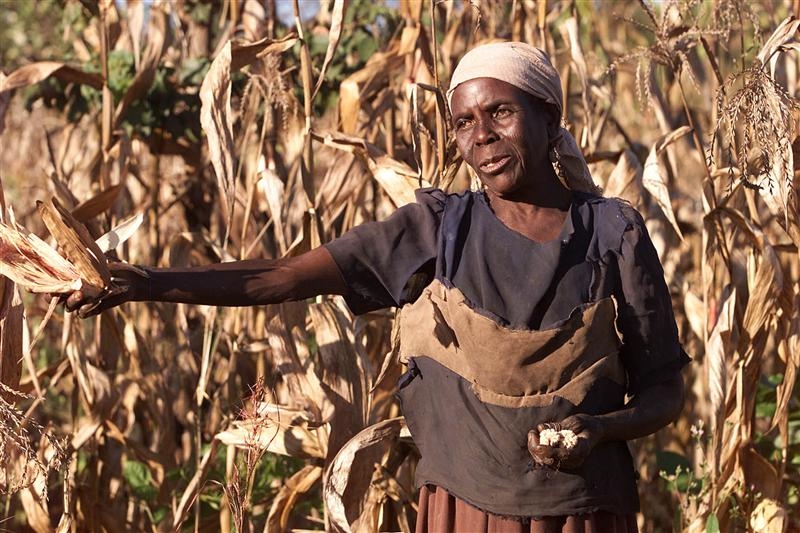Could a leaked cable lead to hunger in Africa?
Published on July 4, 2011 at 12:39 PM by FACE OF MALAWI

(Photo: Before the subsidies: An elderly Malawian peasant farmer describes her failed maize crop, May 25, 2002. Reuters: Howard Burditt)
A leaked cable that has sparked a row between Britain and Malawi could give rise to rural hunger in the impoverished southern African nation.
That is the upshot of the spiralling row that has seen Britain suspend aid including its support for a support for a highly successful seed and fertiliser programme in Malawi – and the government in Malawi stick to its guns despite the possible consequences for its people.
The row, which we have been reporting on, stems from a leaked diplomatic cable that described Malawian President Bingu wa Mutharika as “autocratic and intolerant of critcism.” Other western governments have also had concerns about human rights in Malawi, including a law that lets the government ban newspapers.
Whatever the merit of the arguments, the consequences may be felt most harshly by rural people.
Farm subsidies in the developed world are seen as obscene by some and are regarded as unfair to peasant farmers in regions like Africa who can’t compete with their European or American counterparts because of them.
And of course there is a whole debate about aid in Africa in general which is an occasional theme on this blog.
But the seed and fertilizer programme in Malawi — and a similar one in neighbouring Zambia — actually seems to be reaping real dividends.
Both countries, which are among the poorest on earth and have seen hunger shortages in the past (years ago I visited a Malawi village where people risked crocodile attack to harvest wild water lilies to eat), have been yielding bumper maize crops over the past few years, at least in part thanks to the subsidy programmes.
Malawi is expected to harvest 3.8 million tonnes of maize this year, up from 3.5 million the previous year, despite some dry periods during the year.
Growing harvests have helped annual economic growth to average a brisk 7 percent in the last five years and contain inflation to single digits. Food accounts for 58 percent of the consumer price index.
But because of cutbacks to the programme, Malawi has already announced that this year it will only import 90,000 tonnes of fertilizer, half of last year’s amount. And the number of farmers under the programme is also expected to be reduced from the 1.6 million families who have benefited from the subsidy, so hunger could increase in rural areas.
All because of a leaked cable? Or because of a president’s autocratic behaviour?

